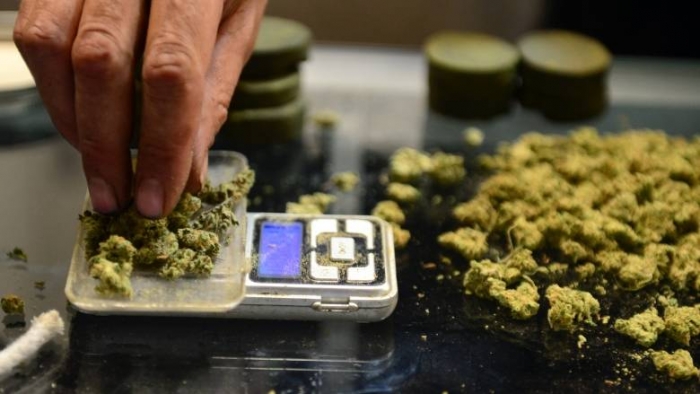You are here
Home 🌿 Medical Cannabis News 🌿 Pregnant women asked to avoid cannabis in face of poor research 🌿Pregnant women asked to avoid cannabis in face of poor research

Nurse, doctor worry use of the soon-to-be-legal drug will exacerbate existing problems.
Alberta medical professionals are warning that the upcoming legalization of cannabis may exacerbate the province's problem of premature and low-weight infants.
Alberta has the highest rate of premature infants, as well as low-weight births, in the country, according to new data from the Canadian Institute for Health Information.
The stubborn statistic has barely budged, despite medical professionals trying to improve infant and maternal health, said Dr. Duncan McCubbin, an obstetrician based in Medicine Hat, Alta.
He said the upcoming legalization of cannabis is being touted as safe and may lead to more women using it during pregnancy.
"I'm extremely worried about the babies and the next generation of premature babies that are going to come in the next five to 10 years in the province in Alberta," he said.
At issue is the research surrounding the medical safety of cannabis for pregnant women and infants, which has not met the "gold standard" of randomized studies of the effects.
And ethically, he said, such tests are hard to run while avoiding harm to participants or their fetuses.
'Just don't have the evidence'
A lack of evidence to the contrary does not mean that cannabis is safe. Early studies suggest carrying parents and their infants could potentially be harmed.
"We really have still not been able to solve the problem of premature babies, and we do know the risk factors, including smoking, lower socioeconomic class," he said. "We just don't have the evidence that cannabis use is not going to make that worse."
The Society of Obstetricians and Gynaecologists issued a warning this month to people of child-bearing age, or who are pregnant or breastfeeding.
It said most people believe no harm could come from consuming cannabis while pregnant, but the organization warns the psychoactive component, THC, can get into the placenta and breast milk, which nurture fetuses and infants.
It said studies have pointed to potential problems, such as pre-term labour, low birth weight, lower IQ scores and impulsivity and hyperactivity in childhood.
Jacqueline Smith, an assistant nursing professor at the University of Calgary, is studying the effects of cannabis use on adolescents and young adults, some of whom are planning to start families.
She points to a study published in the U.K. that found some links between in utero exposure to cannabis and decreased birth weights.
"If we already have low birth [weights] now and women start to use more during pregnancy, then it's going to exacerbate the problem," Smith said.
McCubbin has been working on this issue with the Alberta Medical Association for years. He said the province's high smoking rate is partially to blame for the low birth weight crisis.
That's what worries him if cannabis use increases among pregnant women.
Smoking has been proven to make placentas smaller by prematurely aging the organ that fetuses rely on for nutrients, he said.
"It actually gets plugged up like a filter, and babies who don't have a good placenta don't grow. They're smaller than they're supposed to be," he said.

A research study published in the U.K. found some links between in utero exposure to cannabis and decreased birth weights.
It stands to reason that smoking cannabis could cause the same problem, he said, but the root issue is that no one knows whether it's safe or if there's any benefit to pregnant people.
Learning from the past
McCubbin points to how at different times, a lack of research led obstetricians to believe alcohol and thalidomide were good treatments for premature labour.
When taken while pregnant, thalidomide causes life-altering medical problems and deformities for infants, and a certain level of alcohol use can cause fetal alcohol syndrome.
"We found out those are not good options," McCubbin said. "So the pessimist says that use of cannabis in pregnancy could be exactly the same disaster with the next generation of babies.
"There's no way to predict what's going to happen."
Both McCubbin and Smith say they hope part of the tax revenue from selling legal cannabis gets funnelled back into health research.
420 Intel is Your Source for Marijuana News
420 Intel Canada is your leading news source for the Canadian cannabis industry. Get the latest updates on Canadian cannabis stocks and developments on how Canada continues to be a major player in the worldwide recreational and medical cannabis industry.
420 Intel Canada is the Canadian Industry news outlet that will keep you updated on how these Canadian developments in recreational and medical marijuana will impact the country and the world. Our commitment is to bring you the most important cannabis news stories from across Canada every day of the week.
Marijuana industry news is a constant endeavor with new developments each day. For marijuana news across the True North, 420 Intel Canada promises to bring you quality, Canadian, cannabis industry news.
You can get 420 Intel news delivered directly to your inbox by signing up for our daily marijuana news, ensuring you’re always kept up to date on the ever-changing cannabis industry. To stay even better informed about marijuana legalization news follow us on Twitter, Facebook and LinkedIn.




